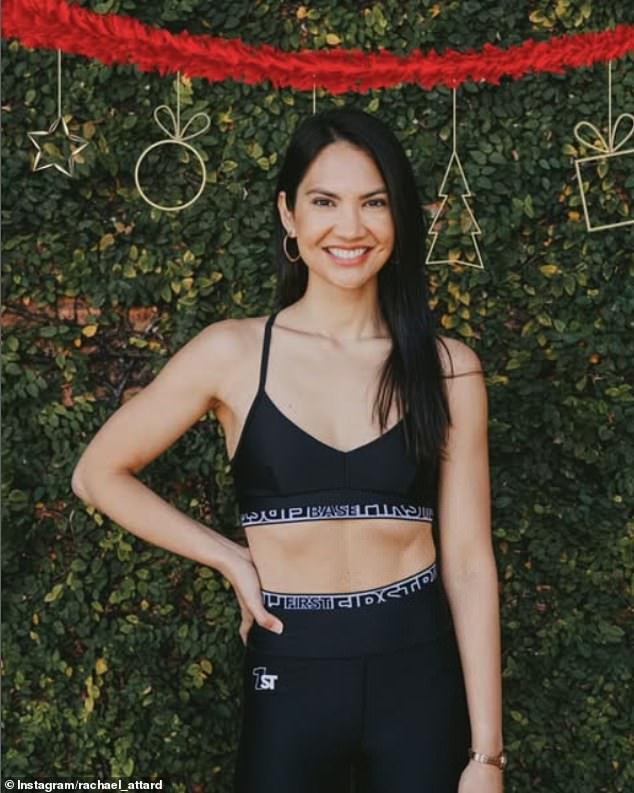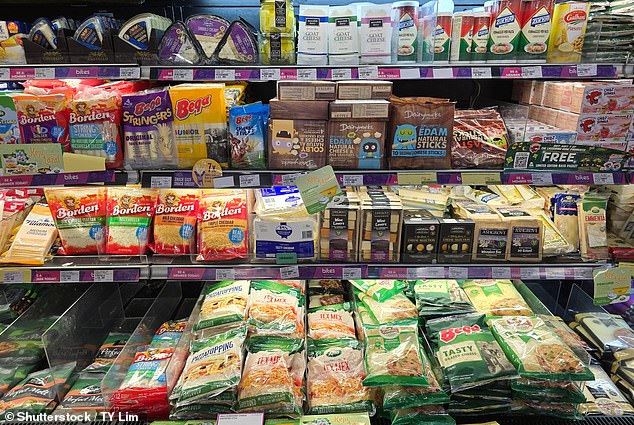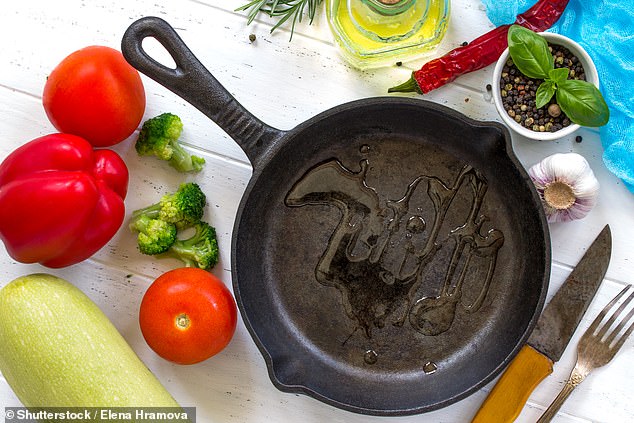An Australian personal trainer has singled out nine common health practices that she believes are doing far more harm than good.
Rachael Attard, a qualified group trainer and sports nutritionist, told Daily Mail that there are certain diet approaches and exercise routines that may inadvertently be working against the body – particularly when it comes to women over the age of 30.
The founder of the Lean Legs Program, which specialises in helping women sculpt their dream bodies without restriction, has pinpointed the nine things that she recommends against clients doing.
Here, Rachael lists the well-intentioned health habits to avoid.
1. Drinking Unfiltered Water
Hitting those daily hydration goals is only part of the story. The Aussie mum believes filtered water should be non-negotiable because tap water contains ‘lots of contaminants including heavy metals (especially lead), fluoride, chlorine and bacteria’.
To avoid potential health issues that may arise from these contaminants, Rachael recommends always opting for filtered water and having a water filtration system installed at home.

Lean Legs Program founder Rachael Attard, an Australian qualified group trainer and sports nutritionist, has singled out the well-meaning health habits that women over 30 should avoid
2. Intense HIIT Workouts
It’s bad news for anyone who craves the intense rush of box jumps and burpee-filled HIIT workouts.
Rachael believes they’re unnecessary for women over 30 because they add unnecessary ‘stress to your already stressed out body’. This can subsequently make it difficult to achieve overarching health goals like weight loss, balanced hormones and raised energy levels.
‘If you don’t have cortisol or hormone imbalances, these workouts might work for you. But unfortunately this isn’t the case for most women over the age of 30,’ she said.
Instead, Rachael prefers ‘low impact’ and ‘no jumping’ style of HIIT programmes.
3. Eating Seafood
A balanced Mediterranean or wholefoods diet often champions seafood, but Rachael surprisingly suggests caution with fish consumption.
‘Fish accumulate heavy metals, especially mercury (bioaccumulation),’ the nutritionist explained, adding that larger varieties ‘like tuna and mackerel have the highest levels’.

Rachael recently shared a social media post detailing the health habits she would never do as a trainer or nutritionist – with perhaps the most surprising being that she didn’t recommend intense HIIT workouts for women over 30
However, Rachael notes that smaller fish, ‘such as anchovies and sardines have significantly less heavy metals’.
While not suggesting nixing fish altogether, Rachael said this metal content is something to be mindful of when eating seafood.
She added that other options like ‘prawns, crabs and scallops’ are usually ‘the lowest in heavy metals’.
4. Cooking with Oil
Whether sautéing, roasting or frying, Rachael suggests ditching oils altogether.
‘When oils are exposed to heat and oxygen, they oxidise. And this produces AGEs (advanced glycation end products),’ she said.
‘AGEs have to be processed by your liver, and high AGE intake causes inflammation, fatty liver, oxidative stress and ageing.’
Instead, she recommends alternatives such as ‘butter, ghee, lard, tallow or broth’.

Despite their convenience, the nutritionist suggested ditching pre-shredded cheese because it contains anti-caking agents and preservatives
5. Buying Pre-Shredded Cheese
Grated cheese packs may seem like a convenient timesaver, but Rachael cautions that they’re ‘coated in anti-caking agents and preservatives to stop it from clumping together’.
‘It’s better to grate your own cheese. Plus it tastes better,’ she said.
6. Exercising Without Eating First
Working out on an empty stomach – AKA fasted cardio – has been a subject of debate amongst fitness enthusiasts.
But Rachael is not a fan and believes bodies should be adequately fuelled prior to a workout.
‘Fasted cardio might be OK for you if you don’t have any fatigue, cortisol imbalances or other hormone imbalances,’ she explained.
‘But that’s not most of us, especially if you are over the age of 30.’

The health expert was not a fan of cooking using cast iron pans because the soft metal can ‘leach into your food’
7. Following an Intermittent Fasting Cycle
Intermittent fasting has a huge following amongst health pundits, and Rachael acknowledges that it ‘does have a lot of benefits and can definitely work for some people’.
‘But it’s the same thing I’ve mentioned previously about adding stress to your body – going for long periods without food is a stress on your body,’ she said.
‘We already fast while we’re sleeping, usually for at least 12 hours.
‘I think three healthy meals per day – and no snacking unless necessary – is ideal.’
8. Avoiding Dairy
Dairy foods have recently been unfairly demonised, according to Rachael.
‘Dairy is very high in a lot of nutrients such as calcium, Vitamin D, K2, magnesium and phosphorus, plus probiotics in yoghurt,’ she said.
The nutritionist also hailed the calcium in dairy for its role in supporting gut health.
‘Eating dairy and consuming calcium is one of the main ways you can protect your gut from daily stress, becoming leaky, and absorbing heavy metals,’ she said.
9. Cooking with Cast Iron Pans
Chefs rate cast iron pans for their superior heat retention, but Rachael says there can be some health downsides, because the soft metal can potentially ‘leach into your food’.
Instead, she suggests using stainless steel cookware.
